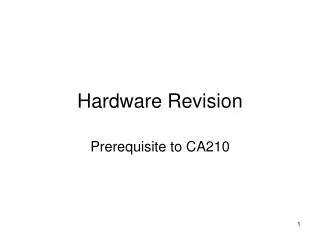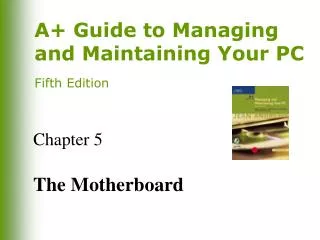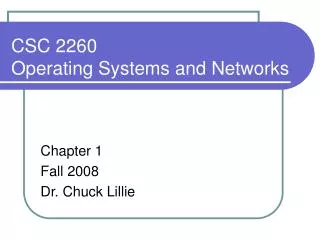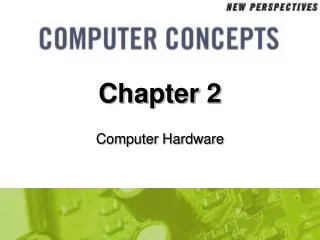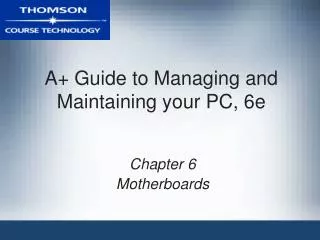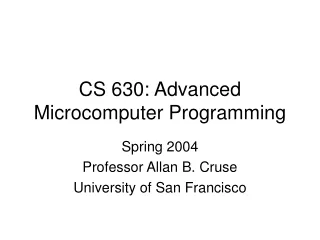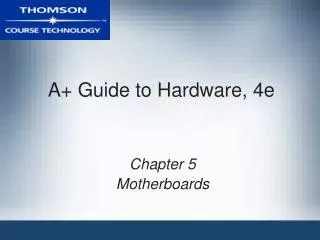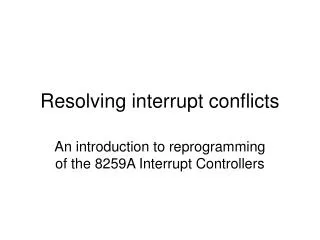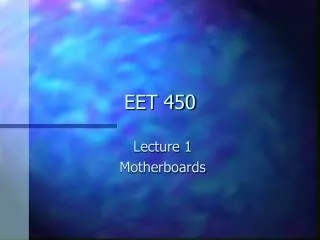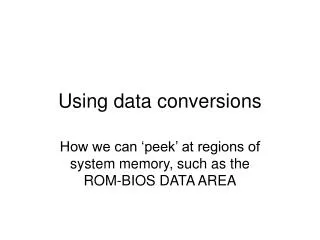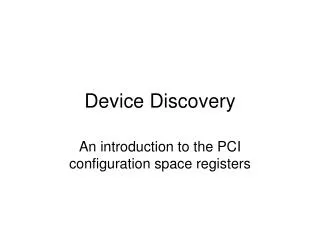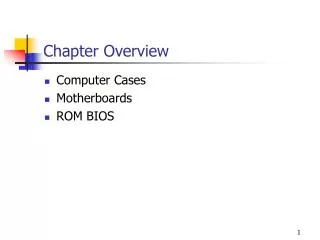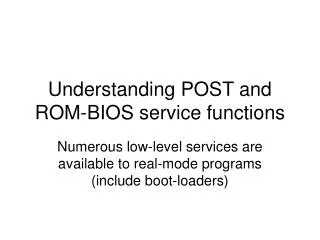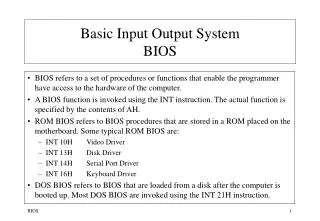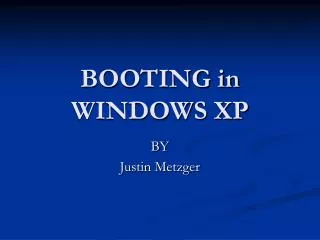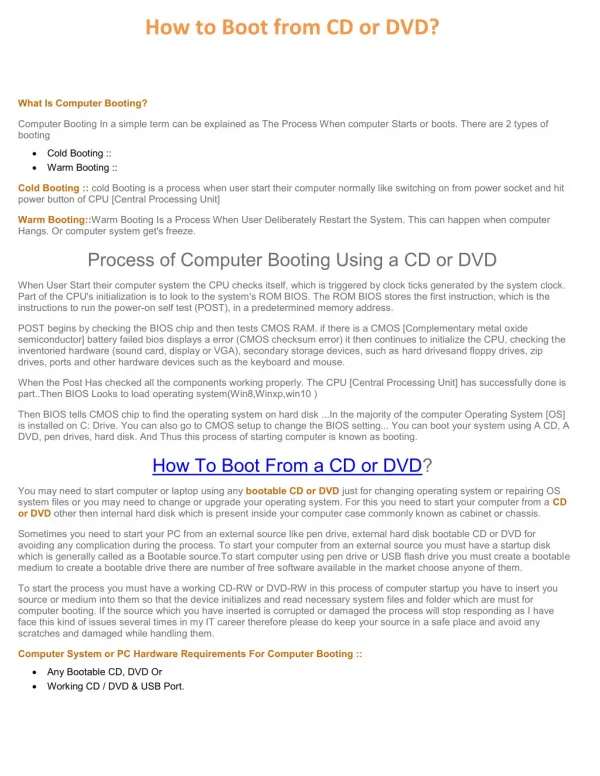How To Boot From a CD or DVD
What Is Computer Booting? Computer Booting In a simple term can be explained as The Process When computer Starts or boots. There are 2 types of booting Cold Booting :: Warm Booting :: Cold Booting :: cold Booting is a process when user start their computer normally like switching on from power socket and hit power button of CPU [Central Processing Unit] Warm Booting::Warm Booting Is a Process When User Deliberately Restart the System. This can happen when computer Hangs. Or computer system get's freeze. Process of Computer Booting Using a CD or DVD When User Start their computer System, the CPU checks itself, which is triggered by clock ticks generated by the system clock. Part of the CPU's initialization is to look to the system's ROM BIOS. The ROM BIOS stores the first instruction, which is the instructions to run the power-on self test (POST), in a predetermined memory address.
★
★
★
★
★
80 views • 3 slides
